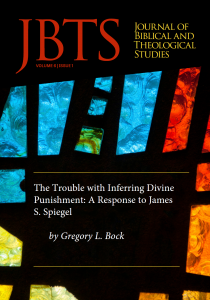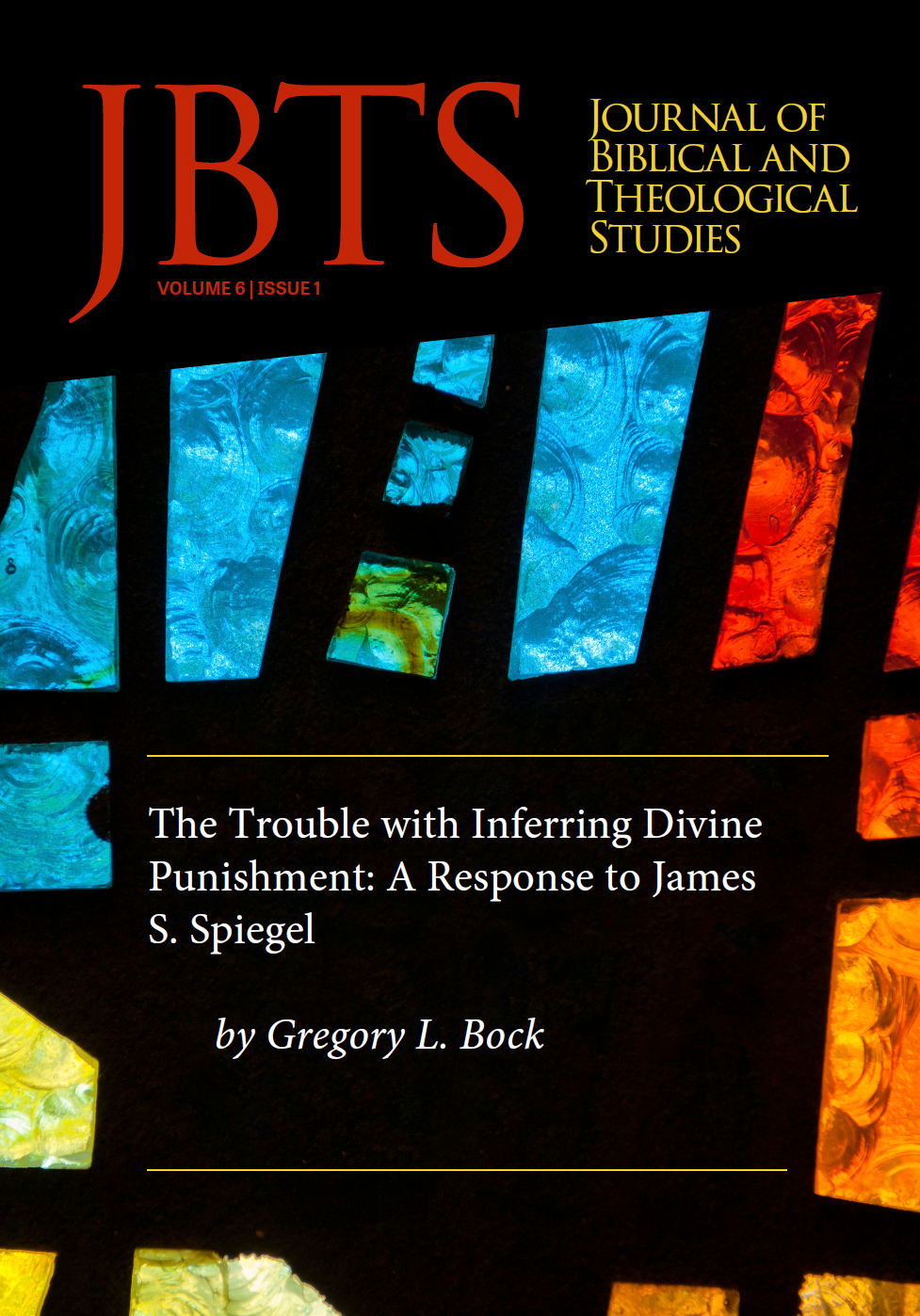The Trouble with Inferring Divine Punishment: A Response to James S. Spiegel
Gregory L. Bock
Assistant Professor of Philosophy and Religion
The University of Texas at Tyler
In a recent JBTS article, “‘It’s the Wrath of God’: Reflections on Inferring Divine Punishment,” James S. Spiegel considers whether we can be justified in believing that events in our lives and the lives of others are instances of divine punishment.[1] His stated aim is to answer the skeptical thesis – “the view that all assertions of divine wrath since biblical times are speculative at best and perhaps even irresponsible.”[2] In other words, he argues that an event’s being in the Bible is not a necessary condition for concluding that it is an instance of divine punishment. He proposes three sufficient conditions that justify ascriptions of divine wrath. The conditions are as follows:
- the occurrence of a miracle;
- extraordinary coincidence; or
- fulfilled bold prediction.[3]
He admits that applying these conditions will not produce the same level of confidence we have in identifying cases of divine punishment in Scripture, and he stresses that we must be cautious lest we slander God by ascribing to him intentions he does not have. I interpret Spiegel’s emphasis on caution here not as tentativeness with regards to the strength of his conditions but only as a reminder that we should not rush to conclusions when it comes to assertions about God.
Read the full article: The Trouble with Inferring Divine Punishment: A Response to James S. Spiegel
[1] James S. Spiegel, “‘It’s the Wrath of God’: Reflections on Inferring Divine Punishment,” Journal of Biblical and Theological Studies, 4, no. 2 (2019): 301-16.
[2] Spiegel, “It’s the Wrath of God,” 311.
[3] Spiegel, “It’s the Wrath of God,” 312.





